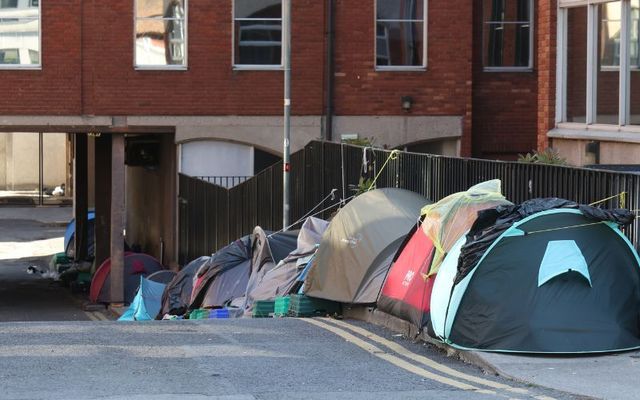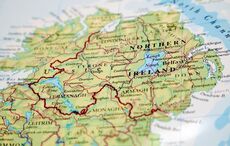Ireland's Department of Integration confirmed to the PA on Monday, December 4 that it was not in a position to provide a bed for all applicants due to a “severe shortage” of accommodation.
Women and child applicants will continue to be accommodated, the Department said on Monday, while male applicants without accommodation can still access services at drop-in centers.
“Despite intensive efforts to source emergency accommodation, the department is currently not in a position to provide accommodation to all international protection applicants due to the severe shortage," Ireland's Department of Integration said in a statement to the PA on Monday.
“Department officials are working to bring more bed spaces into use, and since January 2022 have brought over 10,000 bed spaces into use to accommodate those who arrive in Ireland seeking international protection (IP).
“Various issues beyond the control of the department have resulted in offers not being progressed, and accommodation not contracted, swiftly enough to meet the demand.”
The spokesperson added: “Drop-in day services will be available to unaccommodated IP applicants who wish to avail of them. In such centers, IP applicants can access facilities including hot showers, meals and laundry services seven days a week. They also provide tents and sleeping bags, where required.
“Currently this department has agreements with two charities to provide these services in Dublin in the event that they are needed.
“All unaccommodated IP applicants will be provided with the contact details for IPAS [International Protection Accommodation Services] and with information on accessing health and other public services in Ireland.
“The department will work closely with the HSE to ensure that health services are provided to all those in need.
“All IP applicants who present to the International Protection Office (IPO) during an unaccommodated period will be assessed by IPAS and HSE staff for significant vulnerabilities and health issues, and prioritized for accommodation as necessary.”
Ireland is currently accommodating more than 100,000 people between Ukrainian refugees and international protection (IP) applicants, the Department said on Monday, according to the PA.
At present, any international protection applicant is entitled to a weekly payment of €38.80, though RTÉ News reported later on Monday that the Cabinet will hear on Tuesday of a new plan for asylum seekers who cannot get accommodation to get a weekly payment of €75.
While a total of 107 people were accommodated over the weekend, RTÉ News said on Monday that 32 international protection applicants were not offered State-provided accommodation when they presented to the International Protection Office.
According to the PA, Tánaiste Micheál Martin told reporters on Monday: “Obviously we’re very, very concerned about that and we will do everything we possibly can to avoid it.”
He added: “I think it’s a reflection of significant instability across the world where pressure is growing and continues to grow because of war and conflict, particularly in Ukraine but also the Middle East.
“As you know, I am back from Jordan and Egypt in recent times. The amount of migration that they have experienced because of the war in Syria and because of instability in Palestine itself all points to a very difficult scenario.
“So domestically here then, we have to do everything we possibly can to provide accommodation under our international legal obligations. And we will continue to do that and Government will be meeting this week again to assess the situation.”
The Tanaiste said: “It’s not just in Ireland. This is happening across Europe, is happening across the United States.”
The Tánaiste continued: “This is a global phenomenon – migration – and it’s not going to resolve itself anytime soon.”
Meanwhile, Lucky Khambule from MASI, the Movement of Asylum Seekers in Ireland, told RTÉ News on Monday that the group fears that asylum seekers will have to live on the street during the cold winter months.
Khambule said the Government's "utmost goal" should be preventing people from sleeping on the streets.
"They need to be having a little push to make sure that people do not sleep on the streets, that must be their utmost goal, to make sure that they don't turn people away," he told RTÉ News on Monday.
"What chances do people have who are in the streets, who are in the tents that are not monitored, not managed?
"So we can end up with a situation of people are burned alive in their tents."




Comments